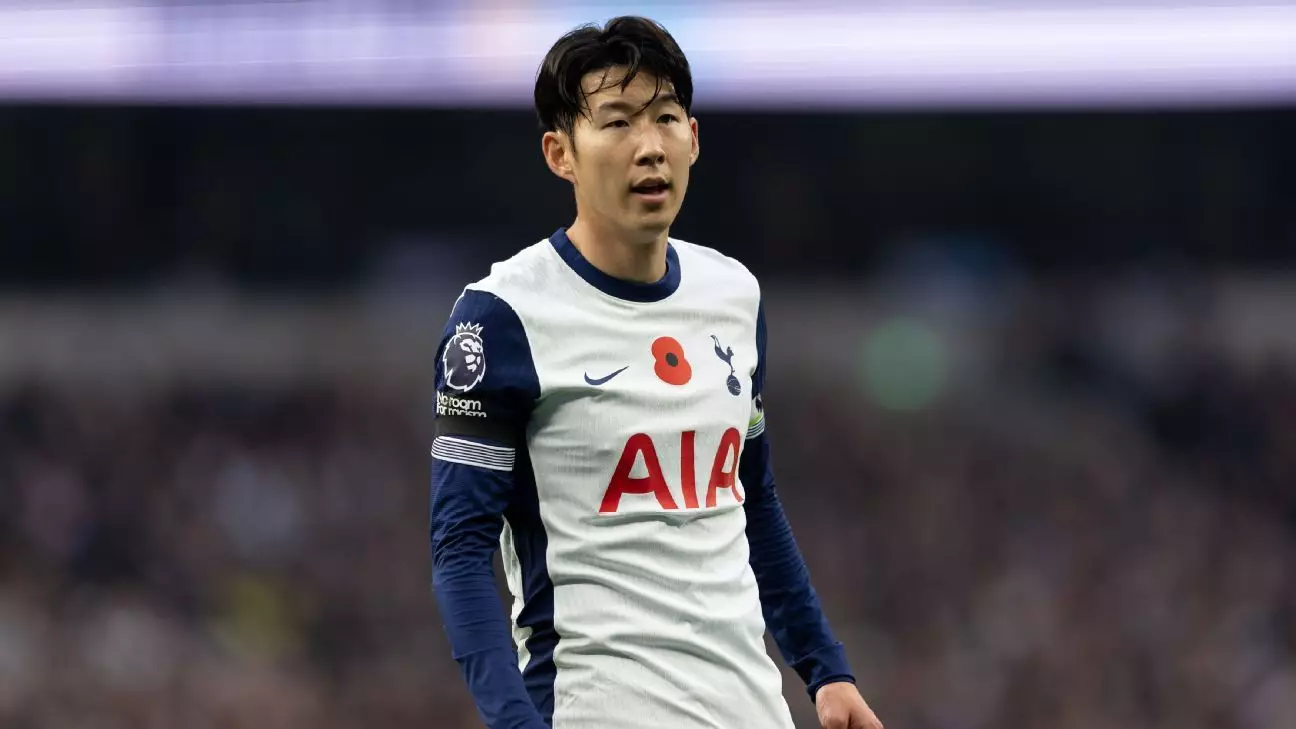The relationship between club and country in football often presents a challenging dilemma, particularly when it comes to the physical well-being of a player. At the forefront of this predicament is Tottenham Hotspur’s star forward, Son Heung-Min. Following a recent series of injuries, Tottenham’s coach Ange Postecoglou and South Korea’s national coach, Hong Myung-Bo, find themselves navigating a delicate balance between ensuring the player’s health and fulfilling international obligations. As both sides work together, the spotlight shines on the importance of communication and cooperation in professional sports.
Son Heung-Min’s journey back to full fitness has been fraught with setbacks. After suffering from a hamstring injury, the South Korean international missed several crucial matches for both Spurs and his national team. His return was marked by struggle, evident in a recent appearance where he experienced a relapse shortly after coming back into the fold. This scenario raises significant concerns about how much game time a player can handle, particularly when transitioning back after an injury. The importance of gradual reintroduction into competitive play cannot be overstated, and managing his minutes on the pitch becomes critical in preventing further complications.
Hong Myung-Bo, newly appointed as South Korea’s head coach, plays a key role in this collaborative effort. His commitment to protecting Son’s health is laudable, as he acknowledges the predicament of wanting to field a star player while prioritizing his long-term fitness. This mentality is crucial, especially as South Korea prepares for the World Cup qualifiers against Kuwait and Palestine. Hong’s assertion that the primary focus should be to safeguard Son’s well-being demonstrates his understanding of the fine line between ambition and responsibility. The challenge he faces is to harness Son’s capabilities without compromising the player’s physical state.
Ange Postecoglou’s approach reflects a broader perspective on the relationship between club and country coaching staff. His reluctance to interfere with national team strategies underscores a respect for Hong’s role while expressing a desire for a cooperative framework. Postecoglou’s insights reveal that successful management of players like Son requires a mutual understanding and dialogue between coaches. Such collaboration can optimize player performance, ultimately benefiting both the clubs and their respective nations.
The expectations on a player of Son’s caliber are immense; he is not only a key player for Spurs but also a vital asset for South Korean football. This multi-faceted pressure can inadvertently lead to hasty decisions regarding his fitness. Thus, it becomes imperative for all parties involved to manage these expectations with caution. Both Postecoglou and Hong must navigate their obligations without putting Son’s health at risk, which can lead to damage that could sideline him for longer periods.
In re-examining the scenario surrounding Son Heung-Min, it becomes evident that a focused and collaborative approach between club and national team is essential for successful player management. As Spurs prepare for upcoming fixtures and South Korea gears up for significant qualifiers, the necessity of protecting players’ fitness levels without stifling their contributions becomes paramount. The situation exemplifies the broader face of modern football, where the stakes are high, and player welfare must remain a priority amid competitive ambitions. Son’s journey embodies not just individual talent but also the intricate web of relationships in the game, suggesting that the future of football management must embrace open lines of communication for the good of players and teams alike.

